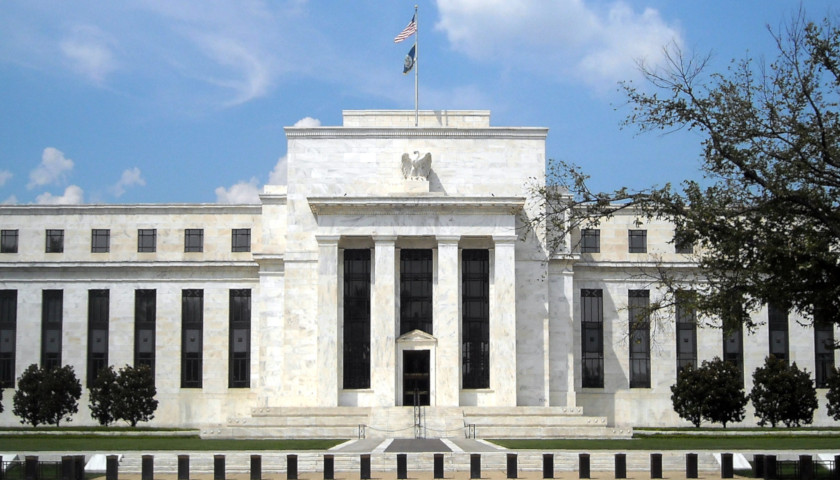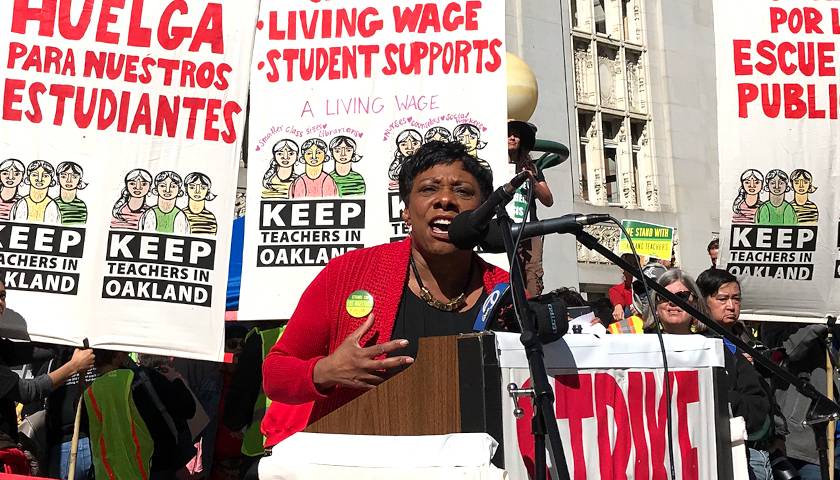by Alexander Salter
“Money is power.” We’ve all heard this aphorism many times before. Too often it’s a lazy shorthand dismissal of the finding of mainstream economics, which show that the pursuit and possession of money often entails innocuous or even beneficial consequences for society. Dr. Johnson was right after all: “There are few ways in which a man can be more innocently employed than in getting money.”
But there are some contexts in which the saying is apt. An obvious case is the Federal Reserve. The Fed has a monopoly on the creation of base money, the fundamental asset underlying the banking and financial system. And over decades, with each instance of financial turbulence, the Fed has become less constrained in how, when, and why it creates base money. Since the Great Recession, the Fed has been able to bestow purchasing power, liquidity, and solvency on just about any financial organization it pleases. If that isn’t power, there’s no such thing.
The Federal Reserve System was created in 1913. It was intended to be a formalization of the interbank clearing system that then existed in the National Banking System. It was not intended to be a central bank. Even in the early 20th century, economists and politicians had some idea of what central banks did and how they behaved, and the existence of such an institution was widely regarded as inherently un-American, in the sense that it could not be reconciled with a self-governing society. That’s why so many proponents of the Federal Reserve System bent over backward to insist they were not advocating the creation of a central bank. And at the time, their repudiations were reasonable; there was no reason the Federal Reserve System had to acquire the powers it did.
But then the US entered the First World War. Wars have a way of eroding society’s long-established institutions. And the political process has a logic of its own. These forces combined to transform the Fed into what its critics feared it might become: a genuine central bank.
The Fed began supporting the market for US government debt during the First World War using techniques that were the forerunners of modern monetary policy. Once the Fed got a taste for tinkering with credit and money markets, it insisted benign monetary management was consistent with its mandate. And it’s been tinkering ever since, often to the detriment of millions of workers who have no control over the Fed but must suffer the consequences of its errors.
It’s well accepted in macroeconomics that the Fed bears a large share of the blame for putting the “Great” in Great Depression. The turmoil that gripped not only US but global markets starting in 1929 was so disruptive, in part, because the Fed bungled its handling of the money supply. Milton Friedman and Anna Schwartz famously demonstrated this in their much-celebrated Monetary History of the United States. So compelling was their case that in 2002, future Fed Chairman Ben Bernanke admitted, “I would like to say to Milton and Anna: Regarding the Great Depression. You’re right, we did it. We’re very sorry. But thanks to you, we won’t do it again.”
But the Fed did do it again. The 2007-8 crisis was a replay of central bank mismanagement. Bernanke’s Fed focused more on shoring up the balance sheets of politically connected banks and nonbank financial houses than combating the liquidity crunch that characterized the early day of the crisis. The result was many irresponsible banks got bailouts, while financial markets as a whole were left scrambling for liquidity. The reverberations of this misdiagnosis were not limited to financial markets: as the spike in unemployment and the precipitous decline in output demonstrate, the Fed’s actions had dire consequences for those far removed from the financial sector.
But through various rounds of loaning banks money on unsound collateral, such as the now-infamous mortgage-backed securities, as well as outright purchases of bad assets to prop up banks’ balance sheets, the Fed has de facto acquired the authority to allocate credit to preferred banks and other financial institutions. Before the crisis, the Fed’s tinkering could still, with some mental gymnastics, be reconciled with the view that the central bank can be and should be a financial-market referee. But now, with its powers to allocate credit in a manner that much more resembles fiscal policy than monetary policy, the Fed has stepped into the game as a player, and one that plays by an entirely different set of rules.
More than a decade after the financial crisis, we’re left grappling with the Fed as an organization with incredible power but subject to minimal responsibility. History shows that the Fed is eager to expand its own powers with each macroeconomic snafu. From clearinghouse to monetary tinkerer to direct allocator of purchasing power, each real or perceived crisis has been used by the Fed to move one step further on the road to monetary central planning. At no time has this process been approved through any of the institutions of collective action Americans recognize as lawful. Nor can it be justified by circumstances, since the only durable beneficiaries of the Fed’s transformation are politically connected bankers and would-be monetary policymakers.
In the case of the Fed, money is indeed power, and power of the most pernicious kind. There’s no reason to continue to put up with this lawless market manipulator. Free societies require any who would wield power on the public’s behalf to submit themselves to the rule of law. It’s long past time we demanded that of the Fed.
– – –
Alexander W. Salter is an Assistant Professor of Economics in the Rawls College of Business and the Comparative Economics Research Fellow with the Free Market Institute at Texas Tech University. His research interests include the political economy of central banking, NGDP targeting, and free (laissez-faire) banking. He has published articles in leading scholarly journals, including the Journal of Money, Credit and Banking, Journal of Economic Dynamics and Control, Journal of Financial Services Research, and Quarterly Review of Economics and Finance. His popular work have appeared in RealClearPolitics and U.S. News and World Report. Salter earned his M.A. and Ph.D. in Economics at George Mason University and his B.A. in Economics at Occidental College. He was an AIER Summer Fellowship Program participant in 2011.
Photo “Federal Reserve” by AgnosticPreachersKid. CC BY-SA 3.0.




